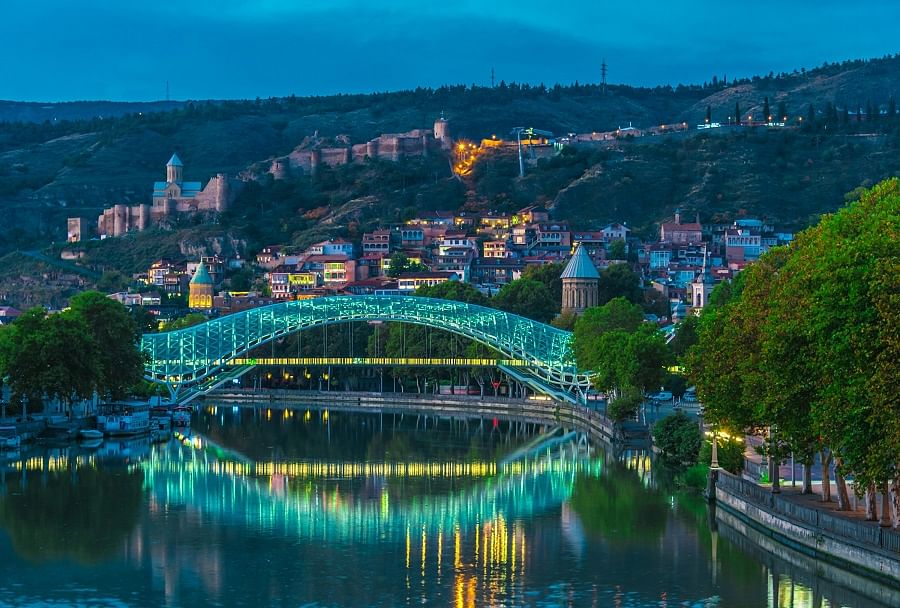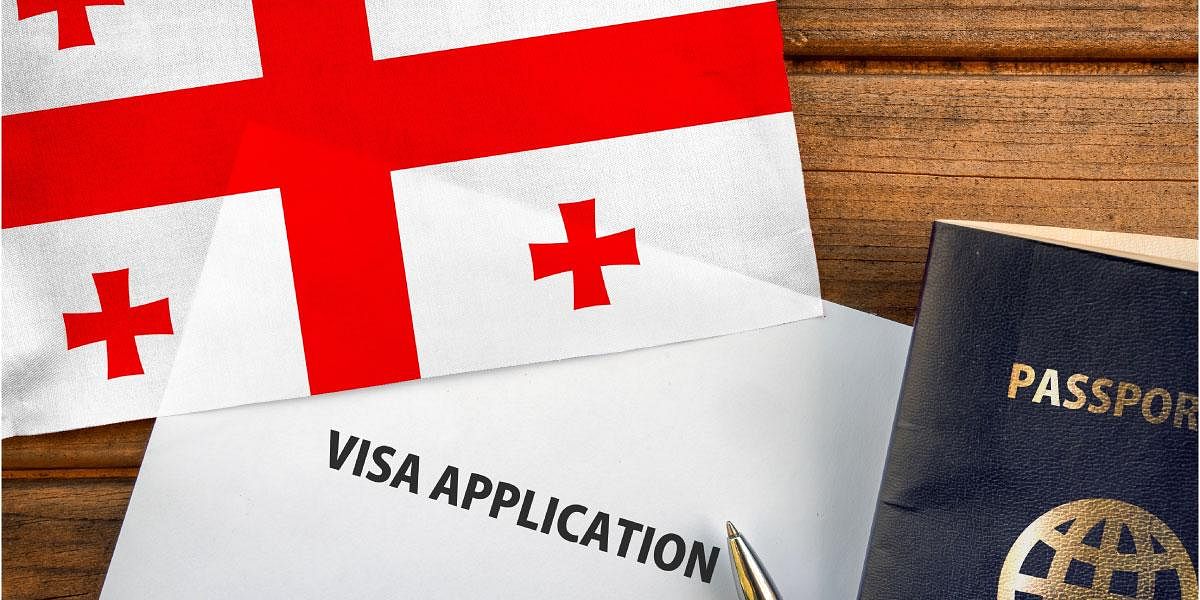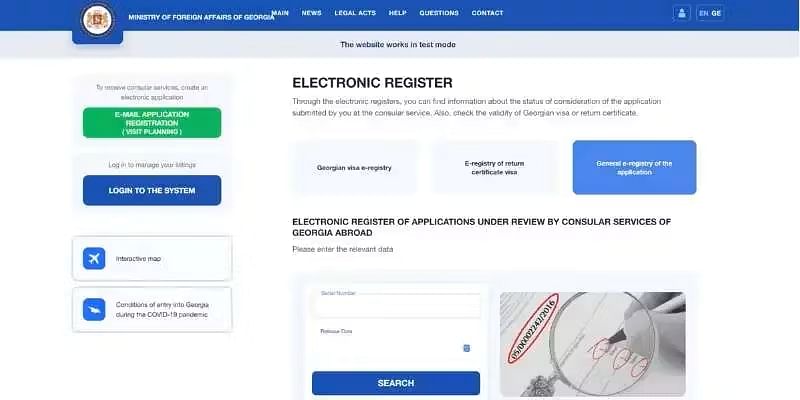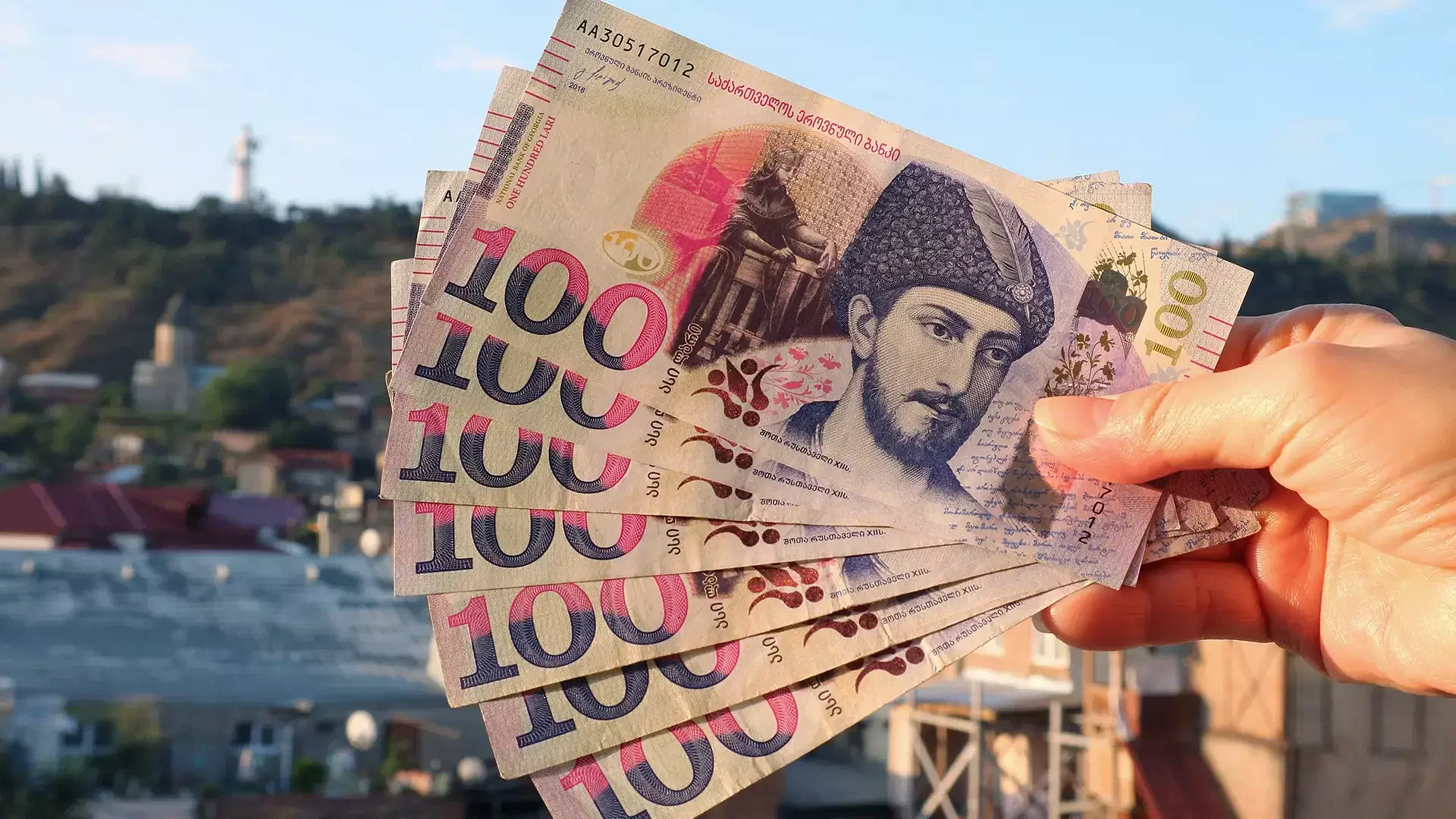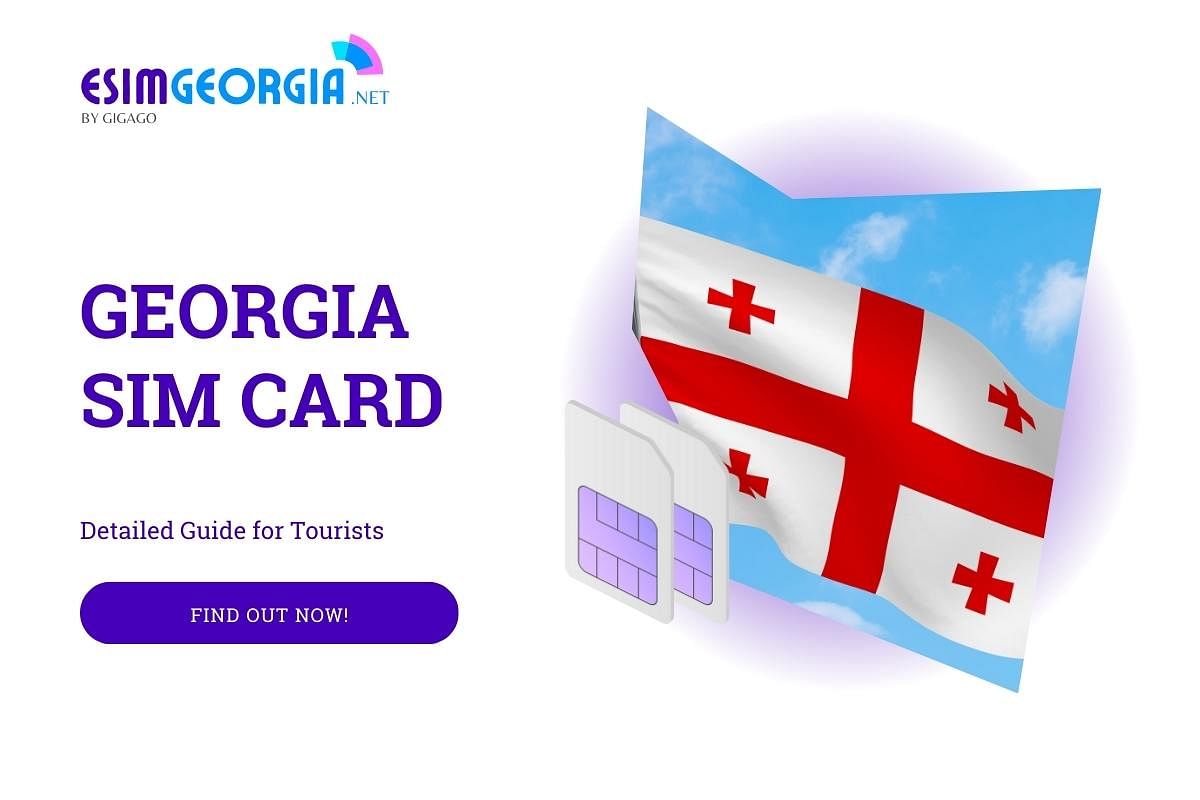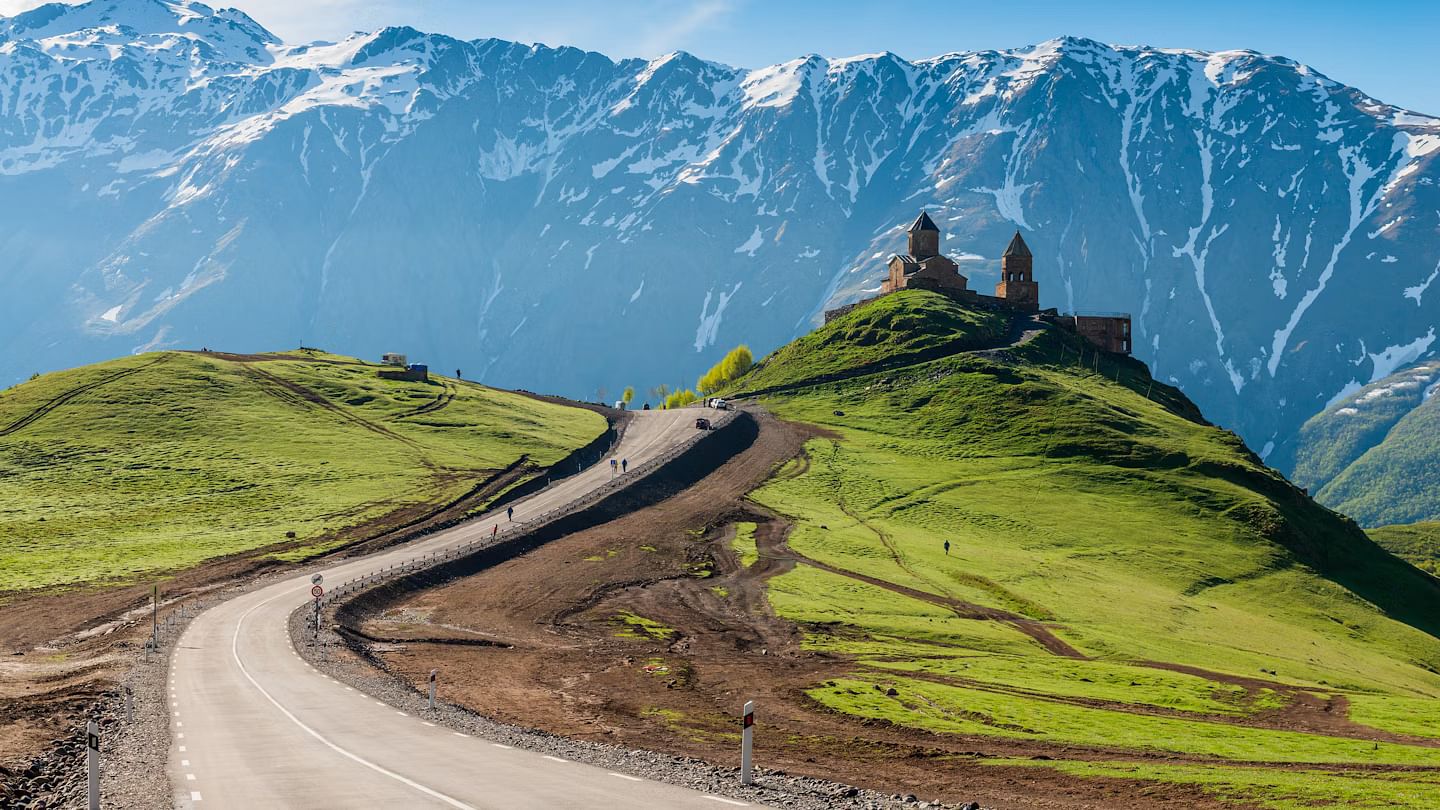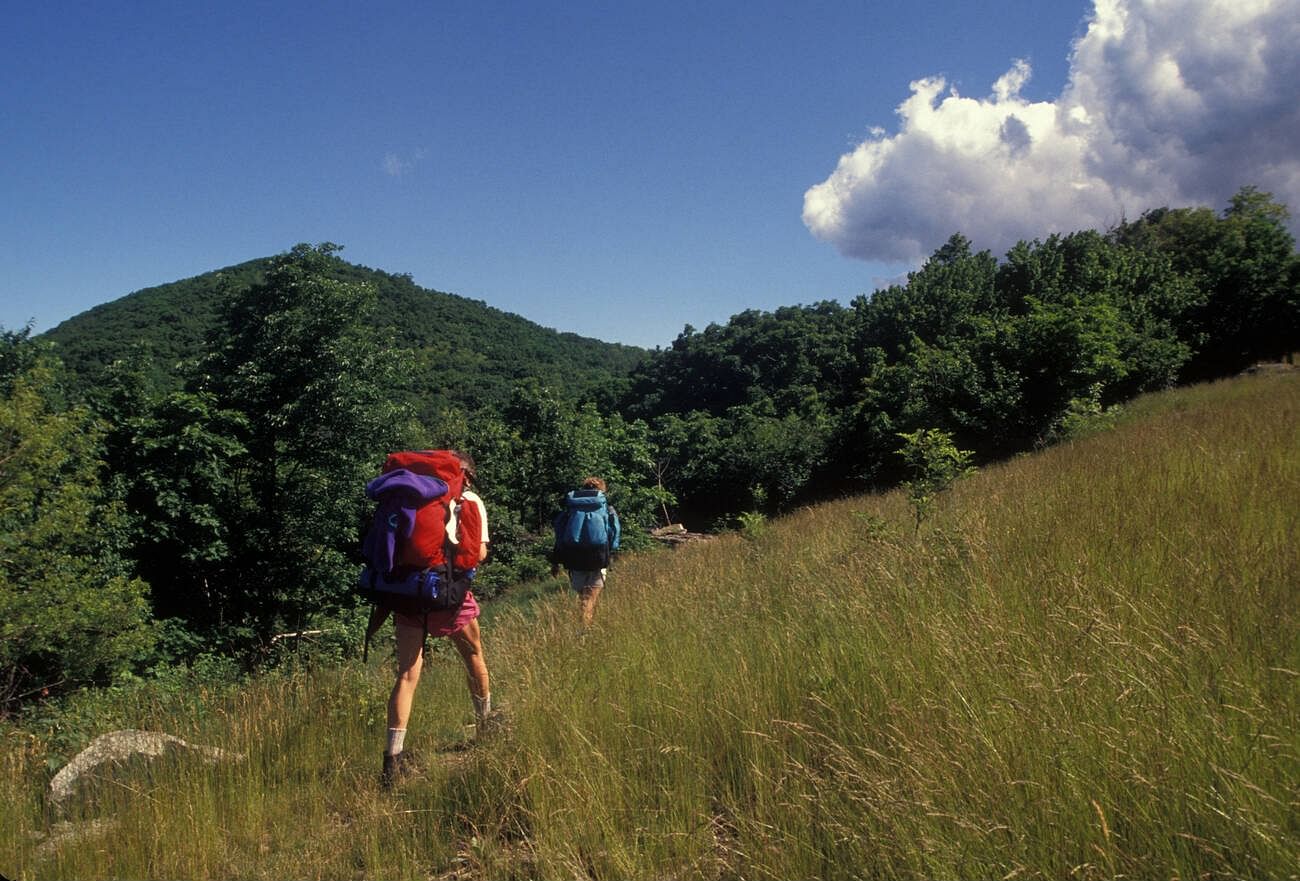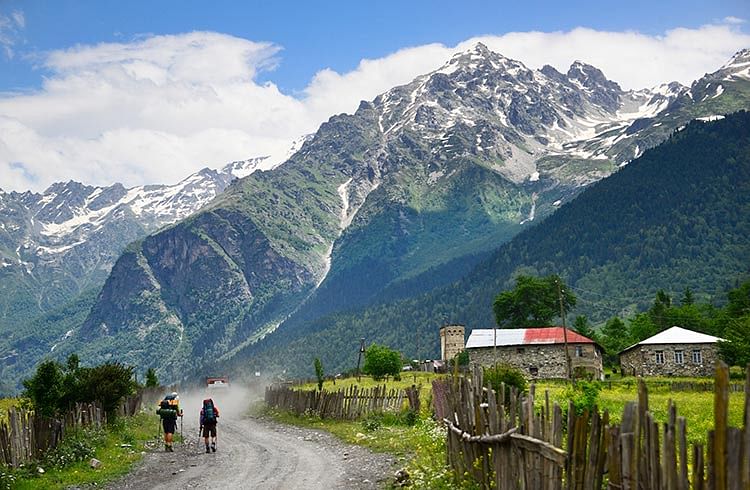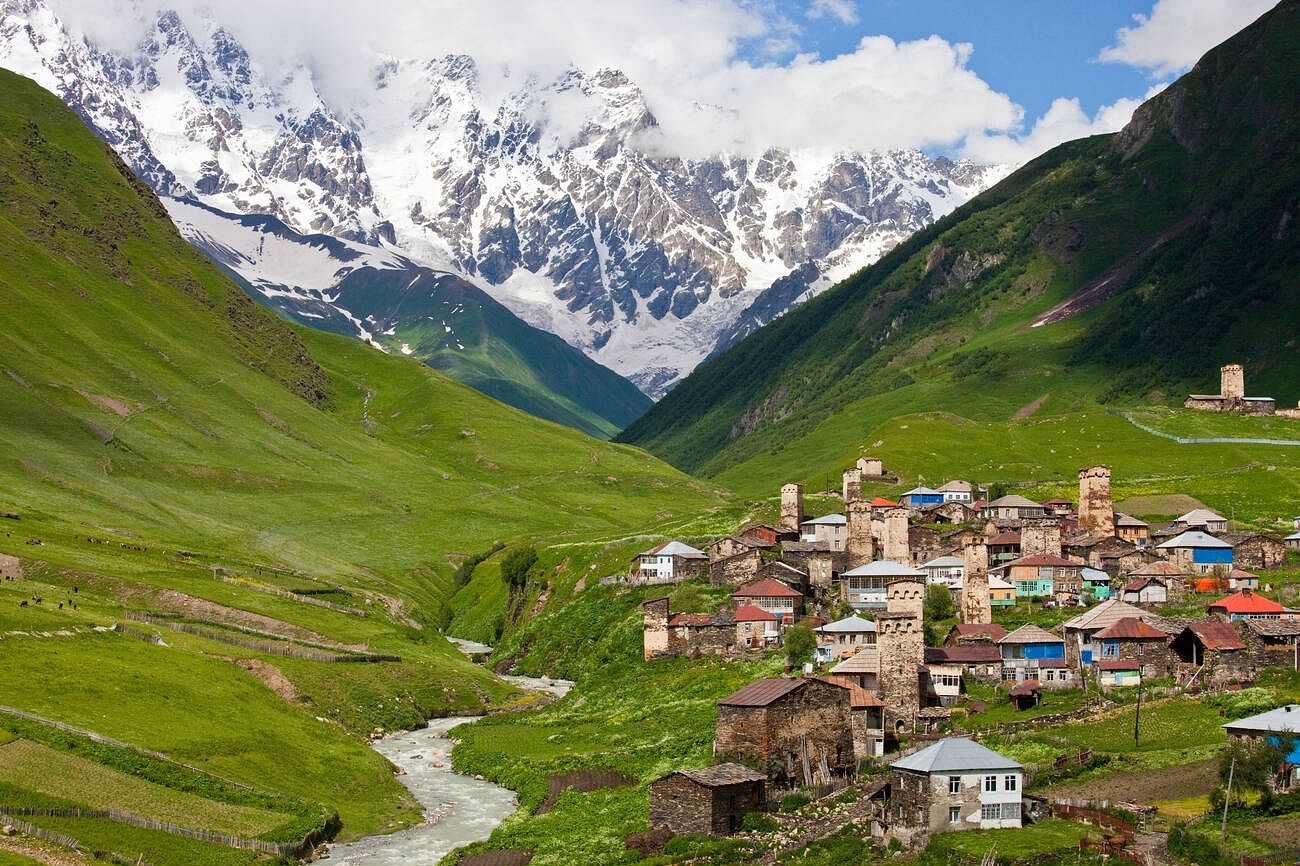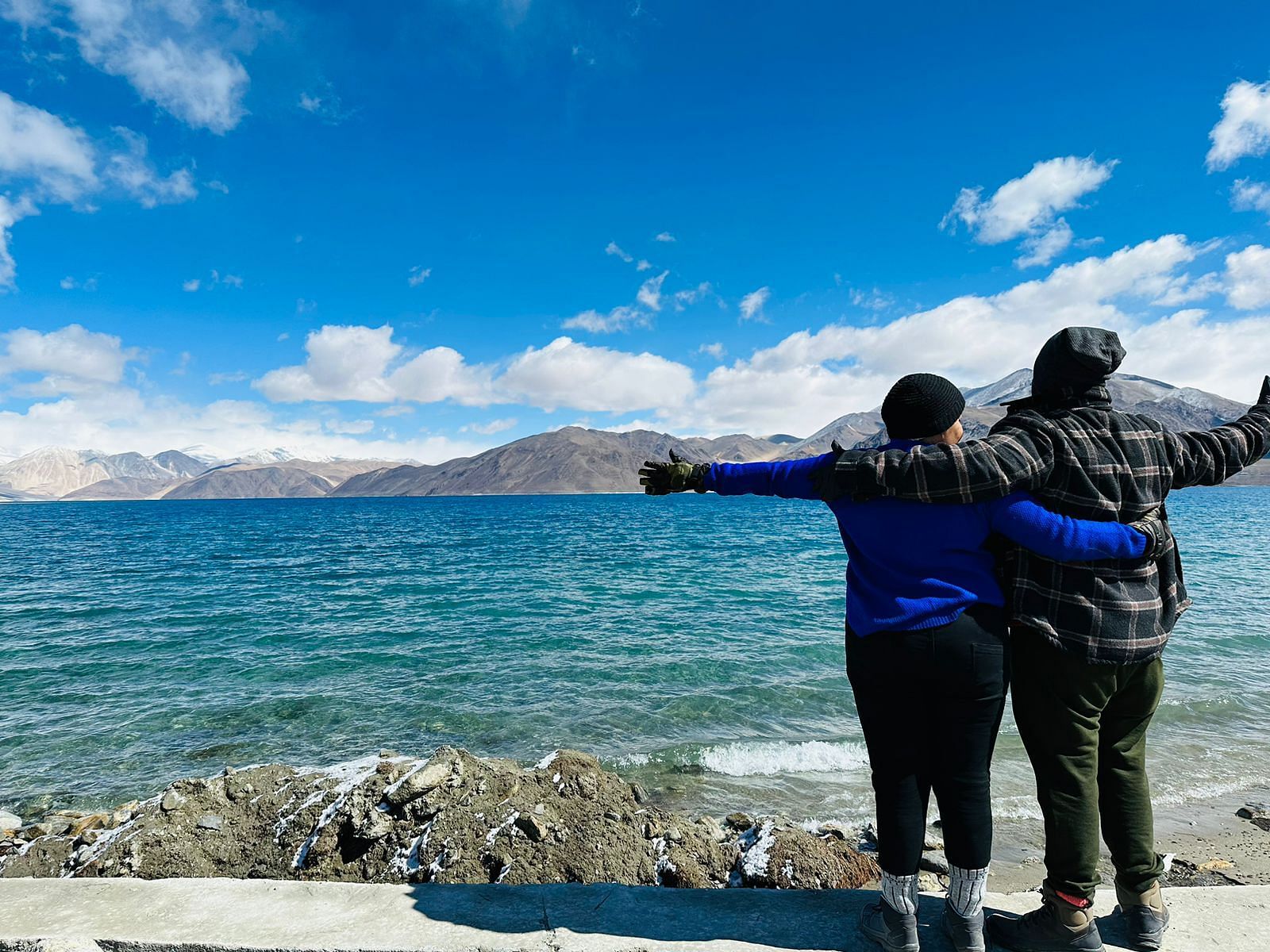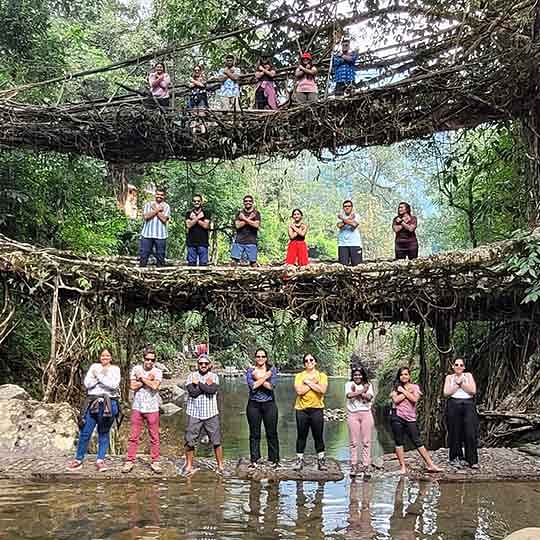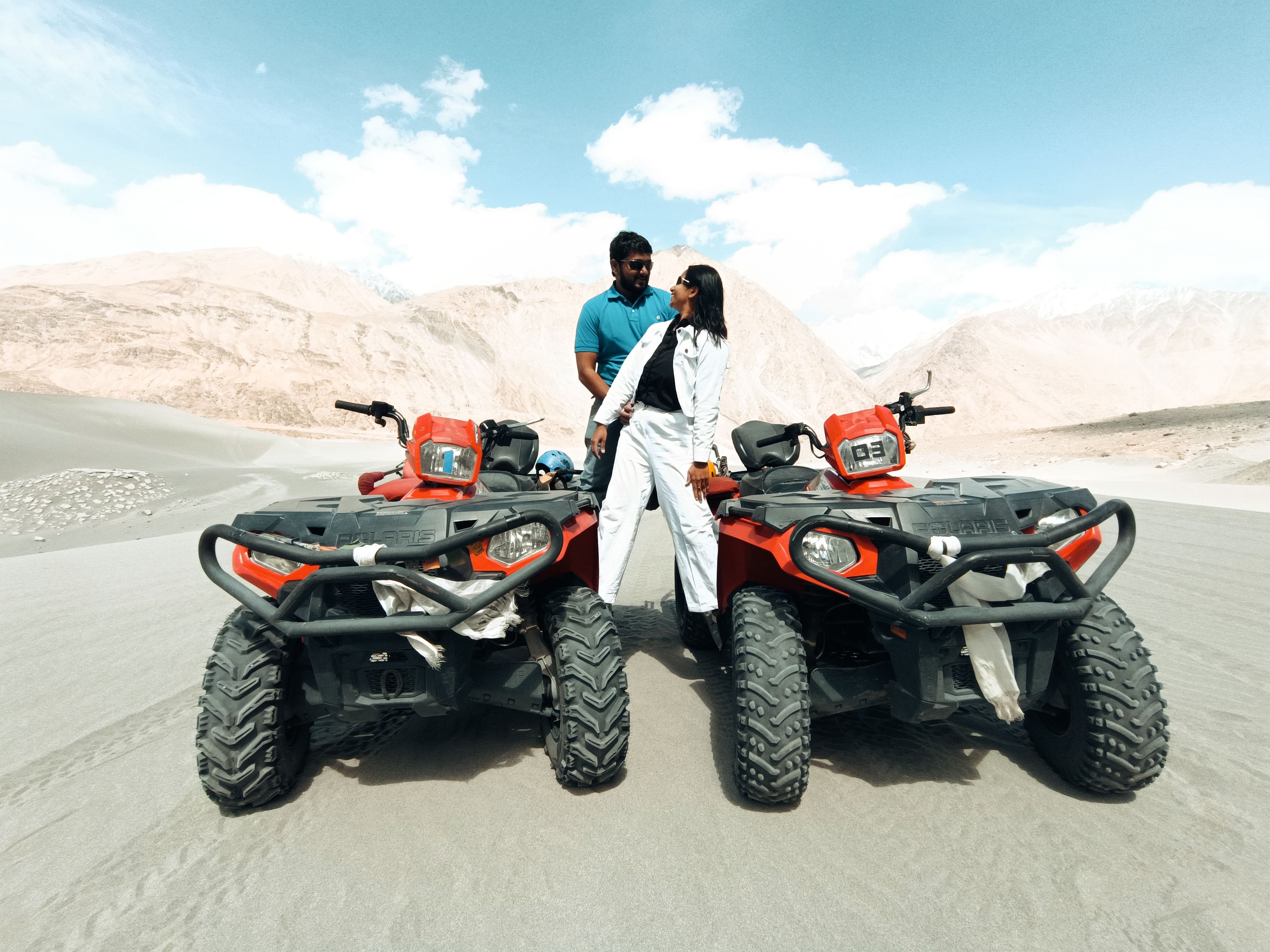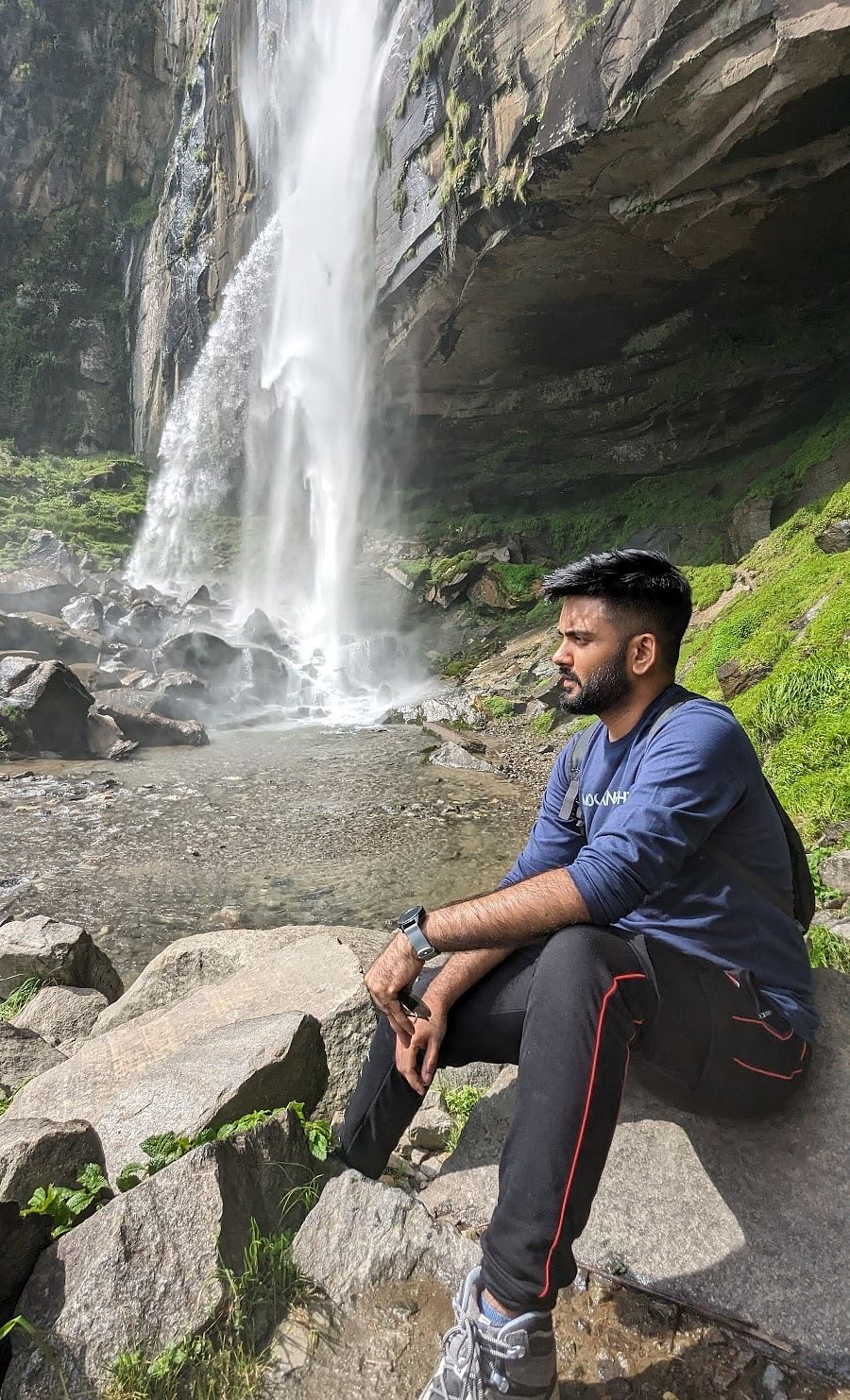Planning a trip to Georgia and already dreaming of khinkali, cozy mountain villages, and Instagrammable cobbled streets? Welcome to the ultimate Georgian adventure—where your wine glass is never empty, and every corner is a hidden beauty.
But before you start packing woolen socks and Google translating “hello” into Georgian (it’s gamarjoba, by the way), let’s get you sorted with some fun and practical travel tips for Georgia! Whether you're heading to the artsy alleys of Tbilisi, the serene slopes of Kazbegi, or the wine paradise of Kakheti, this Georgia tourism guide is here to help you avoid rookie mistakes.
From currency hacks to local etiquette, we've got the essentials that’ll turn your trip from good to unforgettable. So buckle up—Georgia’s calling, and trust us, it’s going to be legendary!
Best Time to Visit Georgia
One of the most useful travel tips for Georgia is to choose your season based on your interests. Georgia is a country you can visit throughout the year, but the best time depends on what kind of experience you want. If you enjoy pleasant weather, blooming nature, and outdoor fun, spring from April to June is a lovely time to explore. Autumn, especially September to early November, is also amazing with colorful landscapes, grape harvests, and cool breezes.
If you're into skiing and snow, winter from December to February transforms Georgia into a snowy wonderland, especially in places like Gudauri and Bakuriani. Summer can be hot in the cities but perfect for escaping to the mountains or relaxing by the Black Sea..
Visa & Entry Requirements for Georgia
This section of the Georgia tourism guide gives you all the crucial travel tips Georgia visitors from India need to know before packing their bags.
Do Indian Citizens Need a Visa for Georgia?
Yes, Indian citizens generally need a visa to enter Georgia. But there are important exceptions and alternative options that can make your entry process easier.
Exceptions to the Visa Requirement
If you're an Indian passport holder with a valid visa or residence permit from any of the following regions, you can enter Georgia visa-free for up to 90 days within any 180-day period:
- Schengen Area
- United Kingdom (including its territories)
- United States of America
- United Arab Emirates
- Australia, Japan, Canada, South Korea, Israel, Qatar, Bahrain, Oman, Saudi Arabia, Kuwait, Cyprus, New Zealand
Diplomatic and official passport holders from India also enjoy visa-free access for a specific duration. Always carry copies of your visa/residence permit and ensure your passport is valid for at least six months — one of the key travel tips for Georgia to avoid entry issues.
Visa Options for Indian Travelers
A. E-Visa (Most Common)
- Indian citizens can apply for a Georgia e-visa through the official portal.
- Processing Time: 5–7 working days
- Documents Required: Passport copy, photo, travel insurance, proof of funds, accommodation, and flight bookings
- Validity: Usually 30 or 90 days depending on the visa type
- Use Case: Tourism or short business trips
B. Consular Visa (If E-Visa Not Applicable)
- For long stays (work, study, or other purposes), you need to apply via the Georgian Embassy or Consulate in India.
- Processing Time: 10–15 working days or more
- Use Case: Study visa, employment visa, or longer-term stay
- Requirements: Vary by category (e.g., employment contract, university admission letter)
Documents Checklist – Georgia Visa Application
Here’s what you typically need to apply:
- Valid passport (6 months validity beyond your stay)
- Completed visa application form
- Passport-size photos
- Flight bookings and hotel/accommodation proof
- Bank statements or sponsorship letter
- Travel and health insurance
- Purpose-specific documents (e.g., invitation letter, admission letter)
Visa Fees
- Tourist Visa: Approx. ₹2,500 – ₹4,000
- Business Visa: Approx. ₹4,000 – ₹6,000
Georgia Currency and Language Used
Currency
Currency Used:
The official currency of Georgia is the Georgian Lari (GEL). You’ll often see prices listed using the symbol ₾. Coins are called tetri (100 tetri = 1 Lari).
Exchanging Money:
Currency exchange is easy and widely available in cities. It's best to exchange money at official exchange booths or banks, as airport rates can be less favorable. US Dollars and Euros are the most commonly accepted foreign currencies, and knowing this can be quite handy when planning your travel tips for Georgia.
Card Payments and ATMs:
Credit and debit cards are accepted in most urban areas, hotels, restaurants, and supermarkets. However, carry cash when visiting smaller towns or remote areas. ATMs are widely available and usually offer English-language options.
Language
The official language is Georgian, which has its own unique script and sounds nothing like Hindi or English. While English is commonly spoken in tourist-friendly areas, especially among younger locals and in cities, it's less understood in villages. Learning a few local phrases like “gamarjoba” (hello) or “madloba” (thank you) can go a long way and is appreciated by locals.
As this Georgia visitors guide suggests—knowing a little about currency and language makes your travel smoother, friendlier, and more immersive.
Internet, SIM and Connectivity in Georgia
Staying connected in Georgia is easy and affordable—one of the smartest travel tips Georgia visitors should know. Most hotels, cafés, and public spaces in cities like Tbilisi, Batumi, and Kutaisi offer free Wi-Fi with decent speeds, making it easy to navigate, stream, or work remotely.
For better connectivity on the go, getting a local SIM card is highly recommended. Major providers like Magti, Silknet (Geocell), and Beeline offer tourist-friendly plans starting from just 5–10 GEL. You can purchase a SIM at the airport or any city kiosk with your passport. Magti is known for the best coverage, especially if you’re heading to remote regions like Kazbegi or Mestia.
eSIM options are also available for newer smartphones. While urban areas have great coverage, signals can be weak in high mountain villages. So, as the Georgia tourism guide suggests, sort your SIM card early—it’s one of the most practical tips in any Georgia visitors guide.
Georgia, located at the crossroads of Europe and Asia, is accessible through multiple modes of transport. Whether you're flying from India or crossing overland from neighboring countries, this section of the Georgia tourism guide covers all the key travel options.
By Air
Tbilisi International Airport (TBS) is the main entry point for international travelers. Two other international airports are:
- Kutaisi International Airport (KUT) – Serviced by budget airlines and often the cheapest to fly into.
- Batumi International Airport (BUS) – Popular during summer months.
Flights from India:
- No direct flights were available initially, but IndiGo now offers direct flights to Tbilisi (average flight time: 5 hrs 24 mins).
- Other airlines like Qatar Airways, Emirates, FlyDubai, and Turkish Airlines operate with layovers in Dubai, Doha, Istanbul, and Sharjah.
- Flight Duration: Ranges from 10 to 15 hours with layovers.
- Ticket Cost: ₹25,000 – ₹50,000 (one-way economy).
- Travel Tip: September is the cheapest month to fly to Georgia.
By Land
Georgia shares its borders with Russia, Azerbaijan, Armenia, and Turkey, and you can enter the country via bus services or shared taxis from these neighbors. A valid passport is required for border crossings, along with a visa if applicable. The Kazbegi–Verkhni Lars crossing from Russia is a popular route, though it may close during adverse weather conditions.
By Sea
The primary seaports in Georgia are Batumi and Poti. These ports offer ferry services to various destinations across the Black Sea, including Ukraine. However, ferry schedules can be irregular, so it’s best to check availability ahead of time.
Getting Around in Georgia
Navigating Georgia is easy once you understand the local transport system. Here's a quick breakdown to help you get around efficiently, with essential travel tips for Georgia included.
In the Cities
- Tbilisi Metro: Fast, cheap, and reliable. A Metro card can be used on buses and minibuses too.
- Marshrutkas (Minibuses): These small shared vans are a local favorite. They connect city neighborhoods and nearby towns. Fares are low, but routes can be confusing for first-timers.
- Buses and Taxis: Public buses are budget-friendly, while taxis are common and affordable. Use ride apps like Bolt to avoid haggling and ensure fair rates.
Between Cities
- Trains: Comfortable and scenic, especially on routes like Tbilisi to Batumi. Tickets can be booked online or at the station.
- Marshrutkas: Still the most widespread and economical way to travel between towns, although they may lack fixed schedules.
- Domestic Flights: Limited but available for longer routes like Tbilisi to Mestia (seasonal).
- Private Transfers or Car Rentals: Ideal for exploring remote areas like Kazbegi or Tusheti at your own pace.
Packing for Georgia can be a little tricky because this country offers everything—snowy mountains, sunny beaches, and unpredictable spring showers. Here's a smart and practical packing guide to help you prepare for your adventure. Whether you're exploring Tbilisi's cobbled streets or hiking in Kazbegi, this Georgia tourism guide has got you covered.
1. Clothing – Layering is Key
Georgia has all four seasons, so your wardrobe should match the time of year:
- Summer (June–August): Lightweight cotton shirts, shorts, flowy dresses, a light jacket, sunglasses, and sunscreen.
- Winter (Dec–Feb): Thermal layers, thick coats, sweaters, woolen socks, gloves, hats, and waterproof boots. Don’t forget ski gear if heading to ski resorts.
- Spring & Autumn (March–May, Sept–Nov): Light jackets, raincoats or umbrellas, and sturdy shoes for the often unpredictable weather.
2. Footwear
- City walks: Comfortable walking shoes or sneakers
- Mountains: Hiking boots are a must
- Warm weather: Sandals or flip-flops for beach or casual outings
3. Travel Essentials
- Passport and visa (if required)
- Copies of important documents – both digital and printed
- Local currency (Georgian Lari) + credit/debit cards
- Universal power adapter (Type C & F)
- Portable charger/power bank
- Reusable water bottle
- Small daypack or backpack
- First-aid kit – painkillers, band-aids, antiseptic, etc.
- Sunscreen and insect repellent
4. Activity-Specific Items
- Hiking: Trekking poles, moisture-wicking clothes, a light backpack
- City exploring: A good camera or smartphone, travel journal
- Beach trips: Swimwear, towel, flip-flops, snorkel gear (optional)
Georgian Food and Drink Tips You Will Love
No trip to Georgia is complete without diving into its bold, hearty, and flavor-packed cuisine. From cheesy breads to homegrown wines, this part of your travel tips for Georgia will make sure you know exactly what (and how) to eat like a local.
Must-Try Georgian Dishes
- Khachapuri: Georgia’s iconic cheese-filled bread. Try the Adjarian version, it comes boat-shaped with an egg on top!
- Khinkali: Juicy dumplings filled with meat, mushrooms, or cheese. Remember to eat them with your hands—bite, slurp the juice, then eat.
- Lobio: A warm bean stew, often served with cornbread or pickles.
- Badrijani: Fried eggplant rolls with walnut-garlic paste—simple but divine.
- Churchkhela: A traditional sweet made of grape juice and nuts, like Georgia’s version of a natural candy bar.
Drinks You Shouldn't Miss
- Georgian Wine: Georgia is one of the world’s oldest wine-producing countries. Don’t leave without trying qvevri wine, fermented in clay pots underground.
- Chacha: A strong local spirit (grape vodka) that’s not for the faint-hearted!
- Mineral Water: Brands like Borjomi are famous for their unique taste and natural fizz.
Safety and Health Tips for Georgia
Georgia is generally a safe and welcoming destination, known for its warm hospitality and stunning landscapes. But like any trip, it helps to stay aware and prepared. This section of your Georgia visitors guide brings you essential travel tips Georgia travelers should keep in mind to stay healthy and safe.
1. General Safety
- Low Crime Rate: Georgia has a low rate of violent crime, especially in tourist areas. Still, practice basic precautions like you would anywhere—avoid poorly lit alleys at night, keep valuables secure, and be cautious with strangers. Safety tips like these are commonly included in a good travel guide Georgia travelers can trust.
- Scams: Tourist scams are rare but possible. Be cautious of unofficial taxi drivers or people offering unsolicited help with money exchange.
- Traffic & Roads: Roads can be unpredictable, especially in mountainous areas. Drive carefully or hire a local driver if you’re not used to hilly terrains.
2. Health Precautions
- Tap Water: Tap water is generally safe to drink in cities, but bottled water is recommended in rural areas.
- Travel Insurance: Always travel with comprehensive medical insurance—it’s a key part of the Georgia tourism guide.
- Vaccines: No mandatory vaccines, but it's good to be up to date on tetanus, hepatitis A, and typhoid if you plan to explore rural areas or eat street food. These health suggestions are often highlighted in any well-rounded travel guide Georgia visitors rely on.
- Pharmacies: Pharmacies are widely available in cities, and many staff understand basic English. However, carry personal medication, especially if you have specific prescriptions.
3. Emergency Contacts
- Police & Emergency Services: Dial 112 (works across Georgia)
- Embassy Contacts: Keep your embassy or consulate information handy, just in case.
4. Outdoor & Adventure Safety
- Hiking: Stick to marked trails and check weather conditions. Mountain weather changes quickly.
- Wildlife: Encounters are rare, but stay alert in remote regions. Don't feed wild animals.
- Altitude Sickness: If visiting high-altitude areas like Kazbegi, take it slow and stay hydrated.
5. COVID-19 & Health Updates
- Georgia no longer has strict COVID restrictions, but keep a mask and sanitizer handy, especially in crowded places.
- Follow local health guidelines and stay updated via reliable sources.
Hidden Gems Worth Visiting in Georgia
Everyone knows about Tbilisi’s charm and Kazbegi’s mountain views, but Georgia has so much more to offer if you step off the tourist trail. This travel guide Georgia edition reveals some lesser-known places that are just as magical, and far less crowded.
- Ushguli – The Highest Village in Europe
Tucked away in the Svaneti region, Ushguli is a UNESCO World Heritage Site surrounded by snow-capped peaks and ancient stone towers. It's remote, but the views and authenticity are worth the journey, making it a must-include in any detailed Georgia travel information.
- Vardzia – A Hidden Cave Monastery
Carved into the cliffs of southern Georgia, Vardzia is a 12th-century monastery complex with tunnels, chapels, and stunning views over the Mtkvari River. A perfect spot for history lovers and photographers alike.
- Martvili Canyon – Nature’s Waterpark
Located in western Georgia, Martvili Canyon offers emerald waters, boat rides through narrow gorges, and waterfalls surrounded by lush greenery. One of the best travel tips for Georgia—go early to beat the crowds!
- Okatse Canyon – Cliffside Thrills
Not far from Martvili, Okatse Canyon features a dramatic hanging walkway with jaw-dropping views. Great for a mix of adventure and Instagram-worthy moments.
- Dmanisi – Where Human History Began
This archaeological site is where some of the oldest human remains outside Africa were discovered. A true hidden gem for those interested in anthropology and ancient history.
Final Words on Travel Tips for Georgia
And that wraps it up. Georgia is one of those places that surprises you in the best way possible. From mountain villages and hidden caves to warm hospitality and delicious food, every day feels like a new discovery.
If you have the right Georgia travel information and follow a few smart travel tips Georgia travelers swear by, your trip will be smooth, exciting, and full of memorable moments. Little things like understanding the local currency, getting a SIM card, or knowing how to get around can really make a big difference.
So take your time, explore beyond the usual spots, try the khachapuri, sip the wine, and talk to the locals. With WanderOn by your side, Georgia has a way of staying with you long after the trip ends. Wishing you amazing views, warm toasts, and stories worth sharing.
Ready when you are. Gaumarjos!




